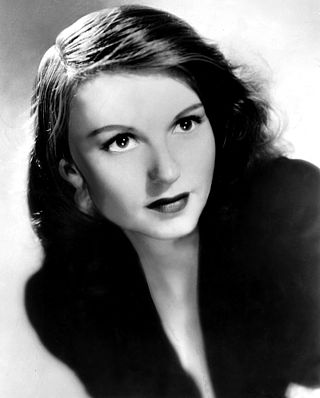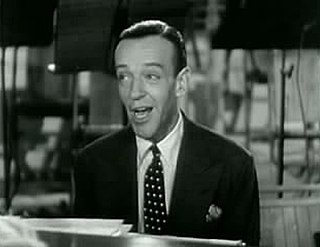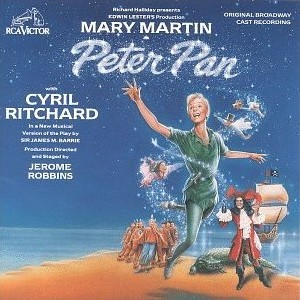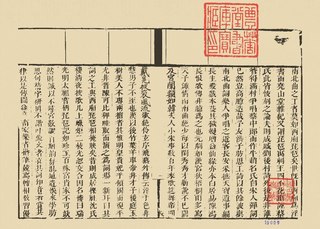
The King and I is the fifth musical by the team of Rodgers and Hammerstein. It is based on Margaret Landon's novel Anna and the King of Siam (1944), which is in turn derived from the memoirs of Anna Leonowens, governess to the children of King Mongkut of Siam in the early 1860s. The musical's plot relates the experiences of Anna, a British schoolteacher who is hired as part of the King's drive to modernize his country. The relationship between the King and Anna is marked by conflict through much of the piece, as well as by a love to which neither can admit. The musical premiered on March 29, 1951, at Broadway's St. James Theatre. It ran for nearly three years, making it the fourth-longest-running Broadway musical in history at the time, and has had many tours and revivals.

Yuliy Borisovich Briner, known professionally as Yul Brynner, was a Russian-born actor. He was known for his portrayal of King Mongkut in the Rodgers and Hammerstein stage musical The King and I (1951), for which he won two Tony Awards, and later an Academy Award for Best Actor for the 1956 film adaptation. He played the role 4,625 times on stage and became known for his shaved head, which he maintained as a personal trademark long after adopting it for The King and I.

Rodgers and Hammerstein was a theater-writing team of composer Richard Rodgers (1902–1979) and lyricist-dramatist Oscar Hammerstein II (1895–1960), who together created a series of innovative and influential American musicals. Their musical theater writing partnership has been called the greatest of the 20th century.

Wang Qiang, commonly known by her courtesy name Wang Zhaojun was known as one of the Four Beauties of ancient China. Born in Baoping Village, Zigui County in the Western Han dynasty, she was sent by Emperor Yuan to marry Chanyu Huhanye of the Xiongnu Empire in order to establish friendly relations with the Han dynasty through marriage.

Patricia Claire Bloom is an English actress. She is known for leading roles on stage and screen and has received two BAFTA Awards and a Drama Desk Award as well as nominations for a Primetime Emmy Award, a Grammy Award and a Tony Award. She was appointed Commander of the Order of the British Empire (CBE) in the 2013 Birthday Honours for services to drama.

Mary Beth Peil is an American actress and soprano. She began her career as an opera singer in 1962 with the Goldovsky Opera Theater. In 1964 she won two major singing competitions, the Young Concert Artists International Auditions and the Metropolitan Opera National Council Auditions; the latter of which earned her a contract with the Metropolitan Opera National Company with whom she performed in two seasons of national tours as a leading soprano from 1965 to 1967. She continued to perform in operas through the 1970s, notably creating the role of Alma in the world premiere of Lee Hoiby's Summer and Smoke at the Minnesota Opera in 1971. She later recorded that role for American television in 1982. With that same opera company she transitioned into musical theatre, performing the title role of Cole Porter's Kiss Me, Kate in 1983. Later that year she joined the national tour of Rodgers and Hammerstein's The King and I as Anna Leonowens opposite Yul Brynner, and continued with that production when it opened on Broadway on January 7, 1985. She was nominated for a Tony Award for her portrayal.

The Peony Pavilion, also named The Return of Soul at the Peony Pavilion, is a romantic tragicomedy play written by dramatist Tang Xianzu in 1598. The plot was drawn from the short story Du Liniang Revives For Love and depicts a love story between Du Liniang and Liu Mengmei that overcomes all odds. Tang's play diverges from the short story in that it integrates elements of the Ming dynasty, despite being set in the Southern Song.

The Shubert Theatre is a 1,600-seat theatre located at 247 College Street in New Haven, Connecticut. It is currently operated as a non-profit organization by the Columbus Association for the Performing Arts (CAPA).

Dorothy Clara Louise Haas was a German-American actress and singer who played in German and American films. After moving to the United States, she often appeared in Broadway plays. She became a naturalized US citizen and married Al Hirschfeld, a noted portraitist and caricaturist in New York City.

Bernard D. Hanighen was an American songwriter and record producer, best known for "When a Woman Loves a Man", and writing lyrics to the jazz composition "'Round Midnight", composed by jazz musician Thelonious Monk. Hanighen also worked with Clarence Williams and Johnny Mercer.
"Getting to Know You" is a show tune from the 1951 Rodgers and Hammerstein musical The King and I. It was first sung by Gertrude Lawrence in the original Broadway production and later by Marni Nixon who dubbed for Deborah Kerr in the 1956 film adaptation. In the show, Anna, a British schoolteacher who has been hired as a governess, sings the song as she strikes up a warm and affectionate relationship with the children and the wives of the King of Siam.

Peter Pan is a 1954 musical based on J. M. Barrie's 1904 play Peter Pan and his 1911 novelization of it, Peter and Wendy. The music is mostly by Moose Charlap, with additional music by Jule Styne, and most of the lyrics were written by Carolyn Leigh, with additional lyrics by Betty Comden and Adolph Green.
"Tianya genü", or "The Wandering Songstress", is one of two theme songs from the 1937 Chinese film Street Angel; the other being the "Four Seasons Song". It was composed by He Luting based on an older Suzhou ballad, with lyrics by Tian Han. The song was sung by Zhou Xuan in the film, playing the role of Xiao Hong.

All Men Are Brothers is a 2011 Chinese television series adapted from Shi Nai'an's 14th century novel Water Margin, one of the Four Great Classical Novels of Chinese literature. The series is directed by Kuk Kwok-leung and features cast members from mainland China, Taiwan and Hong Kong. The series was first broadcast on 8TV in March 2011 in Malaysia.

The Peach Blossom Fan is a musical play and historical drama in 44 scenes that was completed in 1699 by the early Qing dynasty playwright Kong Shangren after more than 10 years of effort.

The Palace of Eternal Life, also translated as The Palace of Eternal Youth, is a play written by Hong Sheng in the Qing dynasty. He absorbed certain material from the long narrative poem The Song of Everlasting Sorrow written by Bai Juyi and the zaju Rain on the Paulownia Tree (梧桐雨) written by Bai Renfu. The Palace of Eternal Life is acclaimed as one of China's "Four Great Classical Dramas", along with The Peony Pavilion, The Peach Blossom Fan and Romance of the Western Chamber. The performance is focused on the everlasting love story of Emperor Xuanzong of Tang and his favorite consort Yang Guifei.
Gao Ming, also known as Kao Ming, Gao Zecheng, and the Cabbage Root Taoist, was a Chinese poet and playwright during the Yuan Dynasty.
Tale of the Pipa is a Chinese nanxi play written by the playwright Gao Ming during the late Yuan dynasty. There are French, German, English translations of the play, and an English novelization-translation.
Blanche Marvin, also known as Blanche Zohar, is an American-born theatre critic, producer, writer, and former actress and dancer, long-based in London.
KO OneReturn is a 2012 Taiwanese drama starring Jiro Wang, Pets Tseng, Sam, Brent, and Sylvia Wang. It was produced by Comic International Productions and Gala Television, it was wrapped on July 7, 2012. it was first broadcast in Taiwan on cable TV Gala Television (GTV) Variety Show/CH 28 (八大綜合台) on December 26, 2012 to February 5, 2013.














